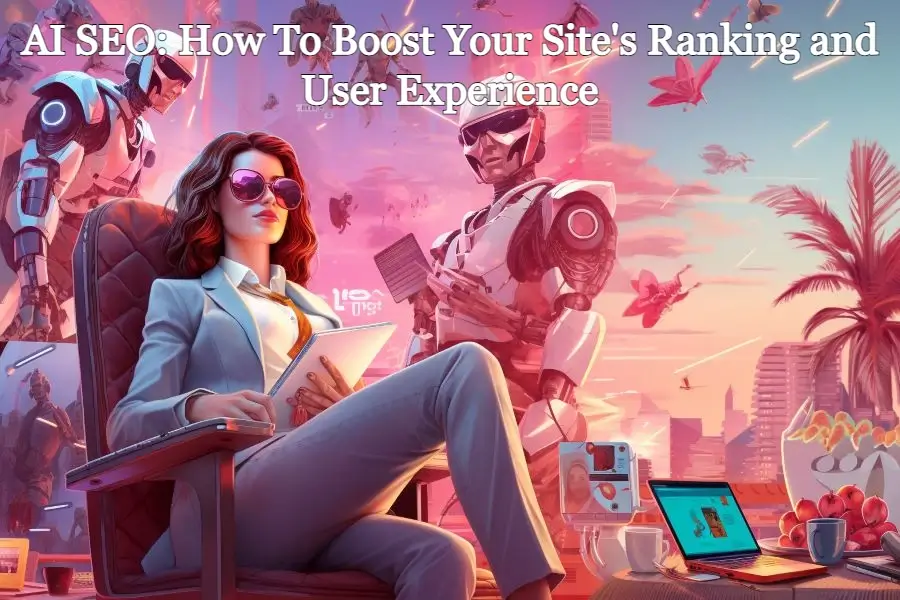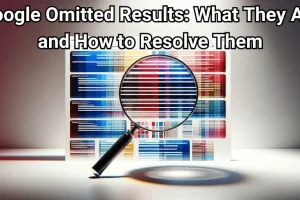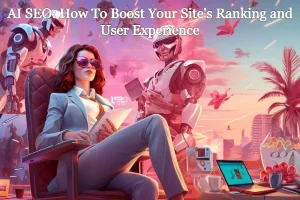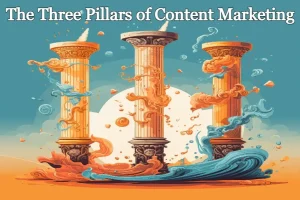In the world of online visibility, AI SEO is becoming more common than you think. The struggle for the top spot in search engine ranking is becoming very challenging. The techniques that were sufficient for having a favorable ranking might have become obsolete. So, like alchemists, SEO experts are always looking for new magical formulas to propel their sites to the top of search results.
The basic search engine optimization approach, laden with manual processes, may not be adequate in today’s changing landscape. Hence, I have put together this piece on Artificial Intelligence Search Engine Optimization (AI SEO).
Highlight Summary:
- The use of AI SEO is becoming crucial to utilize multiplex algorithms to determine the quality and relevance of content.
- LLM (Large Language Model) is another AI tool that uses deep learning algorithms to understand and process natural language.
- Artificial intelligence pinpoints the most related, impactful, and relevant SEO need for your website.
- With AI SEO, experts can make data-driven analyses with confidence.
What is AI SEO?
AI SEO is the act of using modern technologies like predictive analytics, natural language processing (NLP), and machine learning to optimize website content for search engines. With Artificial Intelligence Search Engine Optimization, you can improve your site’s traffic, visibility, and rankings in SERPs (search engine result pages).
The use of AI SEO is crucial because search engines like Google utilize multiplex algorithms to determine the quality and relevance of content. AI can help you to understand your content better and optimize it to meet the requirements.
By adopting AI SEO optimization, website owners and marketers can increase the chances of having higher-ranked content in search results. This, in turn, drives more organic traffic to their websites and helps them generate more revenue.
Benefits of Using AI for SEO
Enhanced Content Creation
Consistent creation of high-quality and compelling content can be challenging. Sometimes, you might need help, and AI can come in handy. With NLP (Natural Language Processing), which is an aspect of AI, you can create readable content tailored to your target audience’s needs. This technology can identify gaps, analyze previous content, and suggest topic ideas.
LLM (Large Language Model) is another AI tool that uses deep learning algorithms to understand and process natural language. This model performs different language tasks like chatbox conversions, analyzing sentiments, translating languages, etc. With LLM AI writers like GPT, BERT, T5, BARD and RoBERTa, you can streamline the content creation process and save valuable time.
Furthermore, the efficiency of AI SEO cannot be overlooked. Imagine an AI tool that can help you create social media updates, product descriptions, and blog posts in a consistent style and tone (which we here at Pugu Digital are creating at the moment). This enhances your brand’s identity across different platforms.
Precise Keywords Analysis
Precision is essential in SEO. Understanding the keywords that boost organic traffic is the key to all successful optimization strategies. This is where artificial intelligence in SEO shines brightly.
If you once used traditional research techniques to source keywords, you’ll understand how imprecise and time-consuming this can be. You’ll also have to sift through lots of data. But, with AI, you can go through mountains of data in seconds. Furthermore, artificial intelligence pinpoints the most related, impactful, and relevant keywords for your web content.
For instance, you can use SEO.ai to generate highly relevant keywords. Just select the “Keyword Generator” button and input the primary keyword. It will supply you with thousands of keywords in different variations. Google Bard can also assist you with relevant topics and the most searched keywords, phrases, and topics.
Improved User Experience
Besides boosting your site’s SEO ranking, you must also provide an excellent user experience for your clients. To do this, you may need virtual assistants and AI-driven chatbots, such as Google Bard. The Google Bard chatbox can generate spoken responses and text in about 40 languages. It can also solve math problems, create images and codes, edit emails, etc.
Also, some of these AI technologies serve as your all-around-the-clock support. Intercom and Chatfuel can guide customers through the site, promptly reply to queries, and give personalized recommendations. The improvement in user experience leads to optimal SEO rankings, low bounce rates, and extended on-site durations.
Note that search engines, such as Google, prioritize user experience. If clients engage with a site positively, it signifies that the content on your website is relevant and valuable. Hence, the site’s SEO ranking improves and can drive more organic traffic.
Efficient Data Analysis
SEO thrives on data. So, experts use tools like Google Analytics, Seolyzer, and SEMRush to analyze these data. For the latter, there are currently 7 tools to use, including AI Narratives for GA4. Import the data directly from your site or Analytics, and the AI will provide personal insight that helps you understand your users better.
While it could be difficult for a human to process lots of data efficiently, AI can help to analyze and process massive datasets in seconds. It identifies correlations, outliers, and patterns within a dataset that might have been hidden. This type of comprehensive data analysis is critical to making informed SEO decisions.
With AI SEO, experts can make data-driven analyses with confidence. Brands can identify areas where they need to improve, modify their strategies, and quickly adapt to dynamic market situations.
Predictive Analytics for SEO Strategy
In the ever-changing world of search engine optimization, staying ahead of the competition is essential. That’s why AI is crucial to harnessing the potential of predictive analytics. AI can spot new trends and use them to predict future SEO patterns. AI can also help you analyze your competitors’ websites and content to see what they’re doing well and where you can improve.
This can help you create a more competitive SEO strategy. By analyzing search trends, user behavior, and vast data, artificial intelligence tools like Google Trends and Moz Pro can give insights into how you’ll shape your SEO technique.
As the SEO landscape continues to evolve, search engine algorithms also undergo frequent updates. To have a high ranking, you need to be adaptive and agile and utilize certain SEO tips. Artificial intelligence gives you the dexterity to change your methods as trends shift.
How to Start Using AI Into Your SEO
- Use the Right AI SEO Software
To boost your SEO with AI, you need the right software. You can utilize SEO.ai for pinpoint and audience targeted keyword research. Ahrefs is also good for in-depth keyword analysis and covers everything you need for your outreach. Other tools include SEMrush, Chatfuel, Tableau, Moz Pro, Google Trends, etc.
- Review Your Content
While you can generate content with AI, always ensure that you have a human reviewing it for relevance, tone, quality, and accuracy.
- Ethical Guidelines
You must have lucid ethical guidelines when using AI. This ensures proper SEO practices.
- Continuous Learning
Update yourself on the latest AI technologies. Also, invest in regular training to harness the full potential of AI.
Conclusion
To promote your site and brand efficiently, you must incorporate artificial intelligence into your search engine optimization technique. By using AI SEO, you can create better content, increase your brand’s efficiency, connect with pertinent and more specific audiences, and provide outstanding customer support and other benefits.
You can hire professionals who can help you boost your site’s ranking and user experience through the use of AI SEO. Pugu Digital is an expert in branding, digital marketing, content marketing, and web development. Contact us today.



















